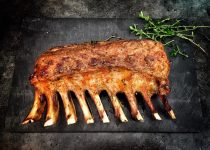Why Are Squirrels Chewing My Patio Furniture
Are you frustrated by the sight of squirrels gnawing on your patio furniture? Wondering why they’re causing this damage? Look no further.
This article will delve into the natural behavior of squirrels, their teeth and chewing habits, and the factors that attract them to your outdoor furniture.
You’ll also find practical tips on preventing squirrel damage and repelling these critters from your outdoor space.
Don’t let squirrels ruin your patio experience – take control now.
Table of Contents
Key Takeaways
- Squirrels have a natural instinct to chew to maintain healthy teeth and communicate with other squirrels.
- Dental problems in squirrels can be caused by poor diet, genetics, and injuries.
- Bird feeders, outdoor dining, and fallen fruit can attract squirrels to patio furniture.
- Deterrents like bitter taste or scent, squirrel-proof covers, and alternative chewing options can squirrel-proof furniture.
The Natural Behavior of Squirrels
Squirrels are just doing what comes naturally when they chew on your patio furniture. Understanding squirrel behavior can help you find ways to squirrel-proof your furniture.
Squirrels have a natural instinct to chew, which helps them maintain healthy teeth and remove the outer layer of their teeth that continuously grows. They also chew to mark their territory and communicate with other squirrels. Your patio furniture, with its wooden or plastic components, becomes an attractive target for squirrels looking to satisfy their chewing needs.
To squirrel-proof your furniture, consider using deterrents such as applying a bitter taste or scent to the furniture, using squirrel-proof covers or enclosures, or offering alternative chewing options like untreated wood or squirrel feeders.
Understanding Squirrel Teeth and Chewing Habits
If you’re wondering why squirrels have been chewing on your patio furniture, it’s important to understand their dental health and natural chewing instincts.
Squirrels have continuously growing teeth that require constant wear and tear, so they instinctively chew on various objects to keep their teeth healthy and in check.
To prevent furniture damage caused by squirrels, providing them with alternative chew toys or creating barriers around your furniture can help redirect their chewing behavior.
Squirrel Dental Health
I’ve noticed that squirrels with dental issues tend to chew on objects like my patio furniture. Just like humans, squirrels also need proper dental hygiene to maintain their oral health. Squirrel dental problems are quite common and can be caused by a variety of factors such as poor diet, genetics, and injuries. These dental problems can lead to pain and discomfort, making it difficult for squirrels to eat. As a result, they may resort to chewing on hard objects to alleviate their discomfort. It’s important to understand that squirrels’ teeth continuously grow, and they need to wear them down by chewing on appropriate materials. Providing them with chew toys or branches can help redirect their chewing behavior and promote good dental health.
| Dental Problem | Causes | Symptoms |
|---|---|---|
| Overgrown teeth | Poor diet, genetics | Difficulty eating, drooling |
| Tooth abscess | Injury, infection | Swelling, pain |
| Tooth loss | Injury, poor dental hygiene | Difficulty eating, weight loss |
Taking care of squirrels’ dental health is essential to prevent them from damaging your patio furniture.
Natural Chewing Instincts
Just like humans, squirrels have a natural instinct to chew on objects to maintain their dental health. This behavior is a part of their natural instincts. Squirrels have long incisors that continuously grow, and chewing helps them wear down their teeth. It also helps them keep their teeth sharp and healthy.
Squirrels often target objects like tree branches, nuts, and bark, but sometimes they may also chew on items like patio furniture. This behavior can be frustrating for homeowners, but it is important to understand that squirrels are not intentionally damaging the furniture. They are simply following their natural instincts.
To prevent squirrels from chewing on patio furniture, you can try using deterrents like bitter sprays or placing squirrel-proof covers on the furniture.
Preventing Furniture Damage
To avoid damage to your outdoor furniture, it’s important to take proactive measures. Squirrels have a natural chewing instinct and can cause significant damage to your patio furniture. Fortunately, there are several squirrel deterrents you can use to prevent chewing damage.
| Deterrent | Description | Effectiveness |
|---|---|---|
| Repellent | Spraying a squirrel repellent on your furniture can deter squirrels from chewing on it. | Moderate |
| Physical barriers | Placing a mesh or wire cover over your furniture can prevent squirrels from accessing it. | High |
| Noise deterrents | Using devices that emit loud noises when squirrels approach can scare them away from your furniture. | Low |
| Distraction | Providing alternative items for squirrels to chew on, such as chew toys or wooden blocks, can redirect their chewing behavior. | Moderate |
Factors That Attract Squirrels to Patio Furniture
You can prevent squirrels from chewing your patio furniture by removing any food sources nearby. Squirrels are attracted to certain factors that make your furniture an appealing target. Here are three things that may be attracting squirrels to your patio furniture:
-
Bird feeders: Squirrels love bird feeders and the seeds they contain. If you have a bird feeder nearby, it could be drawing squirrels to your patio furniture.
-
Outdoor dining: If you frequently eat outdoors, crumbs and food scraps left behind can attract squirrels. Make sure to clean up thoroughly after meals to discourage them.
-
Fruit trees: If you have fruit trees near your patio, fallen fruit can be a major attraction for squirrels. Regularly clean up any fallen fruit to minimize their interest in your furniture.
Preventing Squirrel Damage to Your Patio Furniture
By addressing certain factors that attract them, you can effectively prevent squirrels from damaging your patio furniture.
There are several effective deterrents for squirrel damage that you can try. One option is to use squirrel repellent sprays or powders. These products contain ingredients that squirrels find unpleasant and will discourage them from chewing on your furniture.
Another DIY solution for protecting your patio furniture from squirrels is to create physical barriers. You can use wire mesh or chicken wire to wrap around the legs of your furniture, making it difficult for squirrels to access and chew on them.
Additionally, you can try using motion-activated devices that emit high-frequency sounds or water sprays to startle squirrels and deter them from coming near your furniture.
Remember to regularly inspect and maintain your furniture to ensure any potential damage is addressed promptly.
Repelling Squirrels From Your Outdoor Space
Now that you know how to prevent squirrel damage to your patio furniture, it’s time to focus on repelling these furry intruders from your outdoor space. Here are some effective repelling methods you can try:
-
Natural scents: Squirrels dislike certain smells, such as peppermint, vinegar, and cayenne pepper. You can create a homemade deterrent spray by mixing these ingredients with water and spraying it around your patio.
-
Ultrasonic devices: These devices emit high-frequency sounds that are unpleasant to squirrels but inaudible to humans. Place them strategically around your outdoor area to deter squirrels from coming too close.
-
Physical barriers: Create barriers using materials like wire mesh or chicken wire to keep squirrels away from your patio furniture. Make sure to secure any potential entry points, such as underneath your furniture.
Seeking Professional Help for Squirrel Infestations
If your outdoor space is plagued by a squirrel infestation, it may be beneficial to seek professional help to effectively address the problem. While there are DIY squirrel repellent methods available, they may not always provide a long-term solution.
Professional squirrel removal services have the knowledge and experience to safely and humanely remove squirrels from your property. Squirrels can cause damage to your outdoor space by chewing on furniture, wires, and even the structure of your home. They are persistent creatures and can be difficult to deter on your own.
Professional squirrel removal experts can identify the entry points and take necessary steps to prevent further infestations. Additionally, professional services can provide advice on how to squirrel-proof your outdoor space, such as installing barriers or modifying your landscaping. They can also offer recommendations on how to prevent future infestations by removing attractants like bird feeders or securing garbage bins.
Frequently Asked Questions
How Do Squirrels Contribute to the Ecosystem?
Squirrels play an important role in the ecosystem, contributing to the food chain and aiding in seed dispersal. They help maintain biodiversity and promote forest growth. Their activities benefit the environment.
Can Squirrels Cause Damage to Other Outdoor Structures Besides Patio Furniture?
Squirrels can cause damage to outdoor structures like fences and sheds. Signs of squirrel damage include chewed wood, holes, and gnawed wires. It’s important to address the issue to prevent further damage.
What Are Some Natural Ways to Deter Squirrels From My Yard?
To deter squirrels from your yard, try using natural remedies like planting mint or using squirrel repellent made with ingredients they dislike. These methods can help keep the critters away from your outdoor space.
Are There Any Specific Types of Patio Furniture That Squirrels Are More Attracted To?
To protect your patio furniture from squirrel damage, it’s important to know which specific types of materials they prefer for chewing. By identifying and avoiding these materials, you can keep your furniture safe and squirrel-free.
Are There Any Health Risks Associated With Squirrel Infestations in Outdoor Spaces?
There are health risks associated with squirrel infestations in outdoor spaces. It’s important to take prevention measures to protect yourself and your property. Keep your outdoor areas clean, seal any openings, and consider using repellents.



